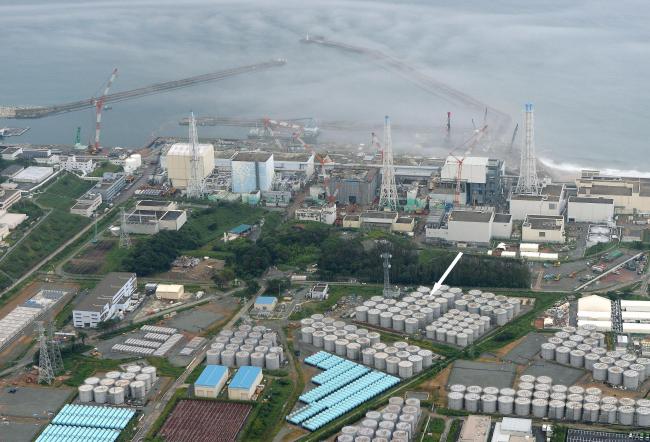
한국 정부가 일본의 후쿠시마 다이치 발전소의 방사능 오염에 대해 안일한 대응을 취하고 있는게 아니냐는 목소리가 높아지고 있다.
2011년 동일본 지진 당시 원전 일부 파괴 이후로 많은 방사능 오염 물질들이 대기에 배출된 것으로 알려졌다. 20일에는 스트론튬 90을 비롯한 방사능 물질들이 포함된 오염수가 약 300 톤 가량 탱크에서 누수된 사실이 밝혀졌다. 스트론튬 90의 합법적 정량은 리터당 30 베크렐이고 반감기는 약 29년으로 사람의 뼈에 쌓이면서 각종 암을 유발하는 것으로 나타났다.
이런 상황의 전개에도 불구하고 정부는 후쿠시마에서 수입되는 농작물과 수산물 일부에만 금지 조치를 내렸고 분기별로만 연안의 방사능 수치를 검사하고 있다.
시민방사능감시센터 김혜정 운영위원장은 “정부는 안전하다는 말로 국민들을 안심시키기보다 뚜렷한 조치를 취하는 것이 급선무“라고 주장했다. 김 위원장은 오염수가 계속 누출되는 상황에서 일본산 농작물과 수산물의 수입이 지속되고 있다면서 “중국과 대만과 협력하여 오염수가 더 이상 배출되는 것을 막아야 한다”고 지적했다.
김 위원장은 연안 지역의 방사능 수치를 지금보다 더 자주 점검하여 오염수가 한국에 닿지 않도록 주의가 필요하다는 점 또한 강조했다.
시민 단체들의 경고에도 불구하고 외교통상부는 지금까지 조사한 바 관련 기관의 실험 결과에 의하면 위험 수치에 다다르지 않았다고 발표했다.
외교통상부의 한 관계자는 지금의 과학에도 허점이 있을 수 있기 때문에 충분한 상황 검토 후 새로운 정책 도입을 고려할 예정이라고 전했다.
한편 이번 주 초에 지난 동일본 지진 이후 세슘이 포함된 수산물 3000 톤 이상이 유입된 사실이 밝혀져 정부측의 농작물과 수산물 수입 검역 전반이 비난받고 있는 상황이다. (영문: 코리아헤럴드 최희석, 이현정 기자, 한글: 코리아헤럴드 윤하연 인턴기자)
<관련 영문 기사>
Gov’t under fire over response to Fukushima radiation
By Choi He-suk and Lee Hyun-jeong
Concerns are rising that the Korean government may be treating radioactive pollution from Japan’s Fukushima Daiichi nuclear power plant with dangerous complacency.
The plant has generated massive amounts of radioactive pollutants since the 2011 earthquake, significant amounts of which have been released into the environment.
On Tuesday, it was revealed that about 300 tons of water containing highly radioactive materials, including strontium 90, had leaked from storage tanks at the plant, and that nearby puddles recorded radiation readings of 80 million Becquerel. Strontium 90, the legal limit for which is 30 Becquerel per liter, has a half-life of 29 years, and is known to accumulate in the bones and cause various cancers.
Despite the developments, Korea has imposed only a limited ban on the imports of agricultural and marine products from Fukushima, and checks for radiation in the coastal waters on a quarterly basis.
“The government has no measures. To say that the government is being complacent is putting things mildly. Contaminated water continues to leak, and food stuffs continue to be imported,” Kim Hye-jeong, an official at a non-governmental organization monitoring radioactivity, said.
She added that Korea needed to test its coastal waters for radioactivity more frequently to ensure that contaminated water was not reaching the country.
“(The government) only says that it is safe. (Seoul) should cooperate with Taiwan and China to stop the contaminated water from being released.”
While civic groups raised alarm, Seoul’s Ministry of Foreign Affairs tried to reassure the public by citing test results from concerned government bodies.
“The concerned bodies are verifying whether (radiation levels) are safe, and so far they consider them to be safe,” a Foreign Ministry official said on Monday.
“In science, there is no such thing as perfect, so we will monitor the situation and consider additional measures.”
Earlier in the week, Korea’s monitoring of imported food came under fire after it was found to have imported more than 3,000 tons of fish containing cesium from Japan since the accident in March 2011.
(cheesuk@heraldcorp.com) (rene@heraldcorp.com)
Gov’t under fire over response to Fukushima radiation
By Choi He-suk and Lee Hyun-jeong
Concerns are rising that the Korean government may be treating radioactive pollution from Japan’s Fukushima Daiichi nuclear power plant with dangerous complacency.
The plant has generated massive amounts of radioactive pollutants since the 2011 earthquake, significant amounts of which have been released into the environment.
On Tuesday, it was revealed that about 300 tons of water containing highly radioactive materials, including strontium 90, had leaked from storage tanks at the plant, and that nearby puddles recorded radiation readings of 80 million Becquerel. Strontium 90, the legal limit for which is 30 Becquerel per liter, has a half-life of 29 years, and is known to accumulate in the bones and cause various cancers.
Despite the developments, Korea has imposed only a limited ban on the imports of agricultural and marine products from Fukushima, and checks for radiation in the coastal waters on a quarterly basis.
“The government has no measures. To say that the government is being complacent is putting things mildly. Contaminated water continues to leak, and food stuffs continue to be imported,” Kim Hye-jeong, an official at a non-governmental organization monitoring radioactivity, said.
She added that Korea needed to test its coastal waters for radioactivity more frequently to ensure that contaminated water was not reaching the country.
“(The government) only says that it is safe. (Seoul) should cooperate with Taiwan and China to stop the contaminated water from being released.”
While civic groups raised alarm, Seoul’s Ministry of Foreign Affairs tried to reassure the public by citing test results from concerned government bodies.
“The concerned bodies are verifying whether (radiation levels) are safe, and so far they consider them to be safe,” a Foreign Ministry official said on Monday.
“In science, there is no such thing as perfect, so we will monitor the situation and consider additional measures.”
Earlier in the week, Korea’s monitoring of imported food came under fire after it was found to have imported more than 3,000 tons of fish containing cesium from Japan since the accident in March 2011.
(cheesuk@heraldcorp.com) (rene@heraldcorp.com)


















![[Today’s K-pop] Treasure to publish magazine for debut anniversary](http://res.heraldm.com/phpwas/restmb_idxmake.php?idx=642&simg=/content/image/2024/07/26/20240726050551_0.jpg&u=)